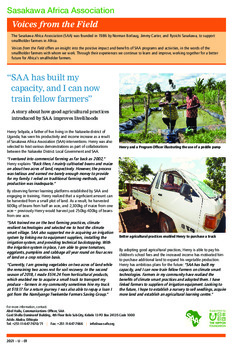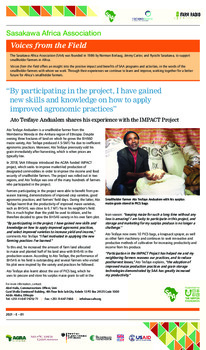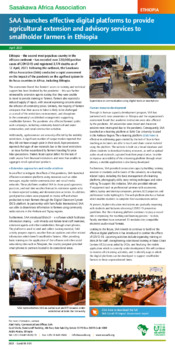Publications & Reports Search
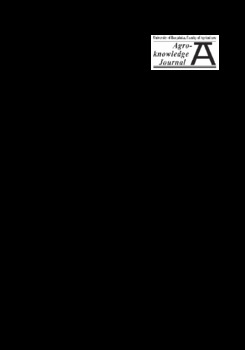
Publications & Reports / Journal
The agricultural value-chain extension model: concepts and applications in Africa
June.2.2021
Published by Agro-knowledge Journal
University of Banjaluka, Faculty of Agriculture
Abstract:
This paper describes the Agricultural Value Chain Extension Model after examining different extension models and differentiated terminologies related to evolution of extension models. Agricultural extension is a common denominator for functional value-chain and food security such that agricultural development outcomes are closely linked to agricultural advice provided by extension services.
This model consists of five components of formal training, key clusters, informal training, value chain actors and value chain centre interlinked and connected with forward and backward linkages with overlapping activities among the key clusters. All of these interplay based on the level of funds and resources available
for the activities connecting the components and the pervasiveness of the national agricultural policy where it is deployed. The paper concludes with the application of the Value-Chain Extension Model, by an International Non-Governmental Organization providing extension services along the value chain in Africa.
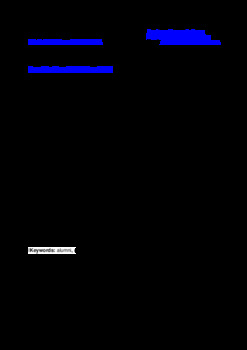
Publications & Reports / Journal
Evaluation of the Demand-Driven Agricultural Extension Curricula among Alumni from Selected Universities in Nigeria
April.1.2021
Published by Journal of Agricultural Extension
Vol. 25 (2) April, 2021
Abstract:
The study assessed demand-driven agricultural extension curricula by alumni from universities in Nigeria partnering with Sasakawa Africa Fund for Extension Education (SAFE) on such curriculum for at least seven years. Using a cross-sectional research design and cluster sampling technique, 227 alumni were randomly selected from a population of 520. Data were collected through structured questionnaire on socio-economic characteristics, mode of study, areas of specialization operationalized as close-ended questions and rating of programme components on a 5 -point Likert type scale of poor (1) fair (2) good (3) very good (4) excellent (5) with 70 items. Data entry and analysis were done with SPSS 25 using percentages, mean score and multiple regression analysis. Adult education approaches, supervised enterprise projects, students’ supervision, academic advice, information sharing, and participation in research projects had highest positiverating; while fund raising, scholarship, opportunity for enrolling and be part of a professional scientific network, linkage & involvement with
Sasakawa Africa Association (SAA) field activities, laboratories and
variety of subjects offered had highest negative rating. Socio-economic characteristics of alumni were significantly correlated and explained 49 percent of the variation in programme rating. The study recommends that there is need to review the curricula covered in this study and mechanisms for compliance with the Sasakawa methodology should be reinvigorated.
